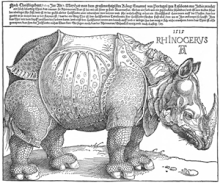
Somebody’s Got to Do It
At the Haruki Murakami interview, there was a faint sense of siege. Tickets had sold out in eleven minutes. Up in the nosebleeds, people were pleading with an usher to let them sit on the stairs. (She was firm: “It’s against the law.”) On stage, the writer belied his rock-star reputation, glancing shyly at his feet. He began by telling the story of a jazzman who, when accused of playing “just like Charlie Parker,” handed his saxophone to his critic and said, “Here—you try playing like Charlie Parker.” He said that we should draw three conclusions from this:
1. Criticizing somebody is fun and easy.
2. Meanwhile, creating something original is very hard.
3. But somebody’s got to do it.
He went on to reveal his writing secrets:
On inspiration: “I became a writer all of a sudden. I don’t know why.”
On the three essentials to literature: “Reason. Harmony. Free improvisation.”
On momentum: “I wanted to turn the pages, but there were no pages—I had to write them. I don’t know what’s going to happen next, so I write it. And then I don’t know what’s going to happen next, so I write it.”
On happiness: “If the protagonist is happy, there’s no story at all.”
On the toughness required to be a writer: “You have to be Rocky.”
On writing in general: “It’s fun.”
Rapid Motion Through Space Elates One
In our Summer Fiction Issue, the Japanese writer Haruki Murakami recalls the moment he decided to try writing a novel (1:30 P.M., April 1, 1978, in the middle of a baseball game) and how, once he exchanged the active life of a jazz-club impressario for the more sedentary practice of writing at a desk all day, he turned to long-distance running for exercise. Since then, he has competed in twenty-six marathons. Writers who run—or who at least appreciate the concept —are perhaps not rare, but literary writing about running is. (William Goldman’s “Marathon Man” doesn’t really count.)
In the magazine, Murakami declares, “When I began my life as a runner. . .it was my belated, but real, starting point as a novelist.” Earlier this year, in an interview in Der Spiegel, Murakami directly linked his marathon training to his creative process:
Der Spiegel: Are you a better writer because you run?
Murakami: Definitely. The stronger my muscles got, the clearer my mind became. I am convinced that artists who lead an unhealthy life burn out more quickly. Jimi Hendrix, Jim Morrison, Janis Joplin were the heroes of my youth— all of them died young, even though they didn’t deserve to. Only geniuses like Mozart or Pushkin deserve an early death. Jimi Hendrix was good, but not so smart because he took drugs. Working artistically is unhealthy; an artist should lead a healthy life to make up for it. Finding a story is a dangerous thing for an author; running helps me to avert that danger.
The New Yorker © 2009

